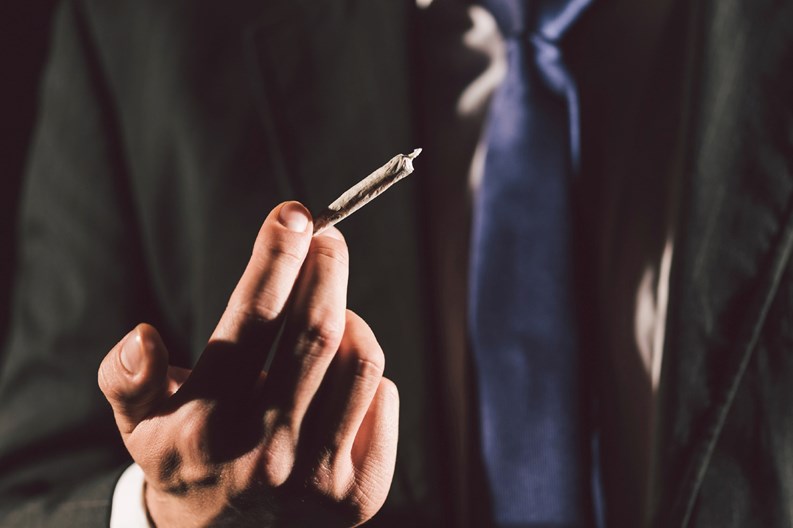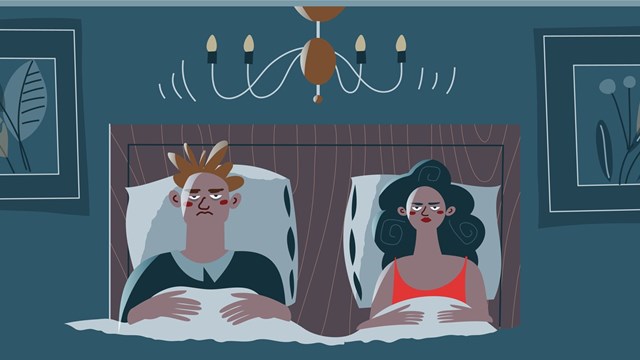Earlier this month, as reported by Barbara Ross in the Daily News, a condominium board at 400 Central Park West on Manhattan's Upper West Side saw fit to file suit against residents Josefina and Charles Berman, alleging that the woman and her son were "smoking too much marijuana and making too much noise," to the extent where both irritants were permeating the apartments of their neighbors. The story goes on to mention that the Bermans have been fined by the board an astonishing 20 times for smoking the drug, and that they owe $12,084 in back common charges and an additional $10,000 in legal fees.
Regardless of the nuances and specifics of this particular case, it seems fairly safe to declare this a situation that started veering off the rails sometime ago. Wherein a board, with its back to the proverbial wall, was forced to take drastic action against shareholders and unit owners who have been fragrantly violating rules to which they had tacitly agreed, not to mention betraying the kindness of their neighbors. Obviously, legislation is a worst-case scenario in communal living, and associations are often loath to let things get that far. So what can a board do to handle residents partaking of marijuana in their units without resorting to scorching the earth?
Letter of the Law
"A board should deal with pot the same way that it deals with other smoking issues in the property, and that's under the objectionable odors clause in the proprietary lease, which basically says that a shareholder cannot permit unreasonable cooking or other odors to escape into the building," says David Amster, president of Prime Locations, a management firm in Yonkers. "There's not much that we can do when we get complaints outside of sending letters out. If the person in question continues—and we require a written complaint from someone, unless a super or manager smells something in the hallway—then we address the issue with that shareholder and try to get them to keep whatever they're doing within their apartment."
Much of the stigma surrounding smoking in general is associated with secondhand inhalation and risk of cancer, and thus pot—which is simultaneously medically prescribed and legal in New York State for treatment of certain conditions, and classified by the federal government as a controlled substance—often takes a backseat to cigarettes as the focal point of regulation. And some places regulate smoking more strictly than others. In Suffolk County, Long Island, for example, they've gone so far as to prohibit smoking in common areas, which according to Charles Incandela, executive director of management and client services at Alexander Wolf & Company in Plainview, are defined as "any enclosed or unenclosed area of a multiple-unit dwelling that residents or one-or-more unit owner are entitled to use." And while this may be fairly common, Suffolk County takes it a step further, specifying "halls, pathways, lobbies, courtyards, elevators, stairs, community rooms, playgrounds, gym facilities, swimming pools, decks, parking garages, parking lots, barbecue areas and grassy areas within 50 feet of a building." Such a detailed list doesn't leave room to light up anywhere outside of a resident's own apartment, at which point odor restrictions come into play.
Citizens on Patrol
When a board or manager suspects that an owner may be using an illegal drug such as marijuana, Alex Kuffel, president of Manhattan-based Pride Property Management, advises they exercise caution: "Only the police are qualified to investigate and prosecute [the private use of marijuana]. We never speculate or accuse unless we have absolute, valid and legal confirmation, such as proof-positive documentation via police report stating that marijuana was detected inside or at a particular apartment. We always request that the complaining resident state his or her complaint in writing with the dates and times of the offensive odor problem, and it's always a good idea that a building's superintendent or a building employee also witnesses the infraction as it's happening."
Sometimes, instead of encouraging smokers to stop outright, a board can have better success with urging owners to better keep their smoking contained. "I had a building where all of the shareholders who smoke were required to install a gasket around their front door, or have the building staff do it for a nominal fee," recounts Helene Hartig, a New York-based attorney. "If, with said gasket installed, smoke or odor continued to escape, that shareholder would then be required to purchase a wind or exhaust fan. If they still failed to contain smoke or odor in their apartments, they or their guests would not be permitted to smoke any longer, and a fine of $50 per month would be levied if they don't discontinue."
Several organizations exist for boards to investigate smoke-free housing. For more information on going smoke-free in your building, contact www.smokefreehousingny.org or www.nycsmokefree.org.
Stigma Warning
To hear the aforementioned professionals tell it, a lot of what fuss remains over marijuana use for non-medicinal purposes, is tied to the fact that it is still illegal in New York, and its frequent use, if not appropriately contained, can be tied to the reputation of the building in question. "If a condo or co-op is particularly family-oriented, you walk by, you're trying to teach children a certain way to live their lives, maybe you're religious... certain people still do get up in arms about smelling smoke," notes Hartig. "It's a board's job to set the tone for its property, how it's perceived, and what it considers important. So if you're a self-managed five- or six-unit property in Brooklyn, marijuana use probably won't cause an eye to bat. But if you're a building on Park Avenue, that's a different story entirely."
Mike Odenthal is a staff writer for The Cooperator.







3 Comments
Leave a Comment